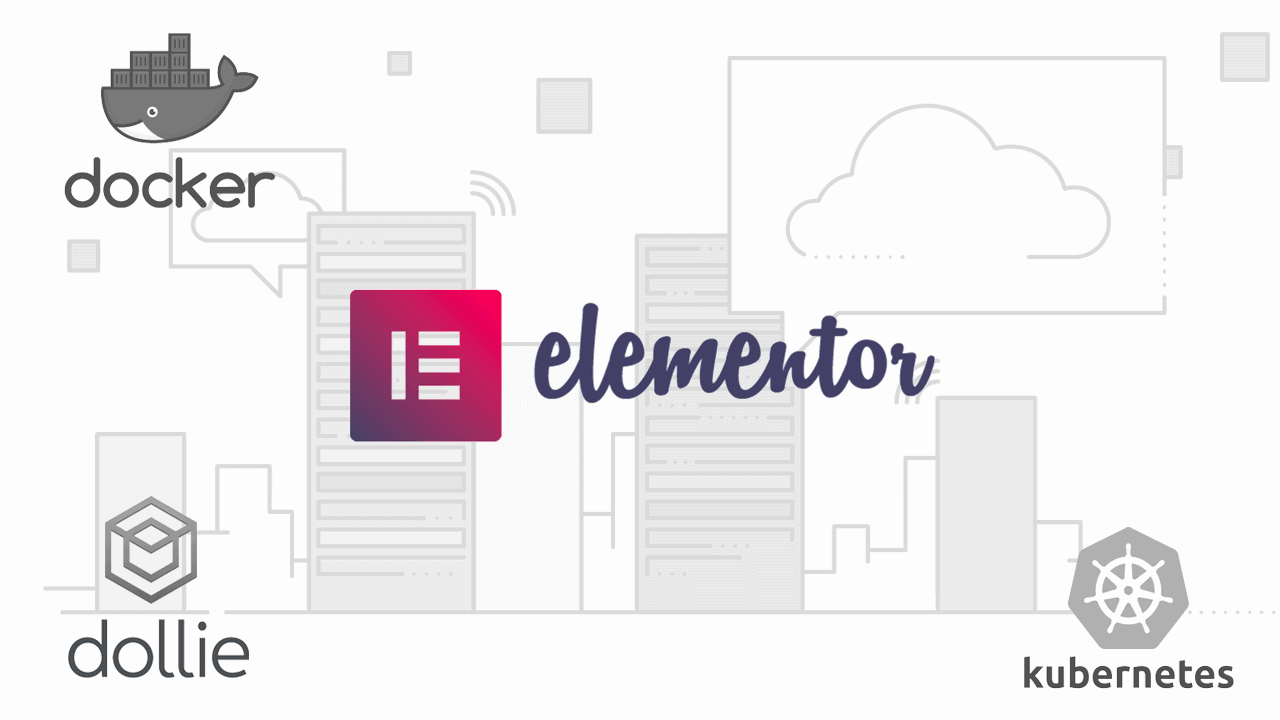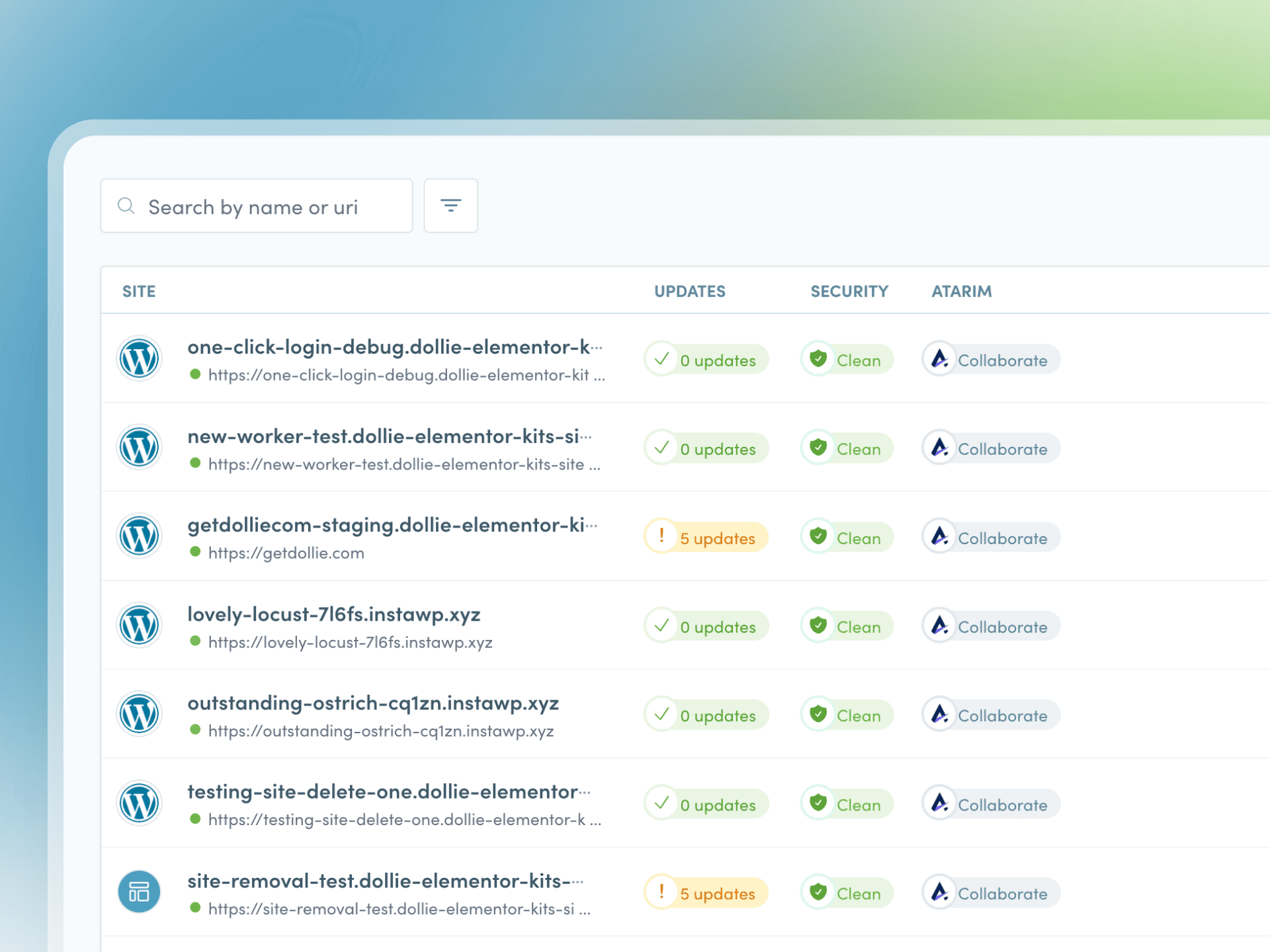I believe that Elementor is about to undergo a massive shift. And it’s going to have a major impact on WordPress businesses. In this post, I’m going to speculate about:
- Why that $15 million will go towards a new SaaS platform.
- How major industry players like Envato will get involved.
- Why you should be thinking about taking your business in a similar direction.
A big announcement hit the WordPress airwaves recently. If it hasn’t had a chance to get on your radar yet, here’s what happened:
Elementor raised $15 million in Series A funding.
Here’s the big question we should all be asking:
Why is an already successful plugin — arguably, the most successful page builder plugin — raising so much funding?
Here’s the answer Elementor’s co-founder and CEO Yoni Luksenberg gives us:
“[W]e plan to grow our operational capabilities and support our expanding community on the local and global levels. We intend to bolster our online training and learning programs, strengthen our infrastructures, and recruit more talent. At the same time, we will continue to develop new innovative product lines, thereby enhancing the Elementor platform.”
As a WordPress developer or agency, you may be excited as it sounds like there’s more support and better features on the way.
But I suspect there’s a bigger change coming down the pipeline for us all.
To explain why Elementor is headed towards a SaaS business model and what this means for your business, let’s look at its history as well as the clues it’s dropped along the way.
The Success of Elementor Explained
I started using Elementor when it had under 10,000 installs, and watched as the product and community took shape over time.
So, what was it that helped Elementor go from 0 to 4 million installs in less than four years?
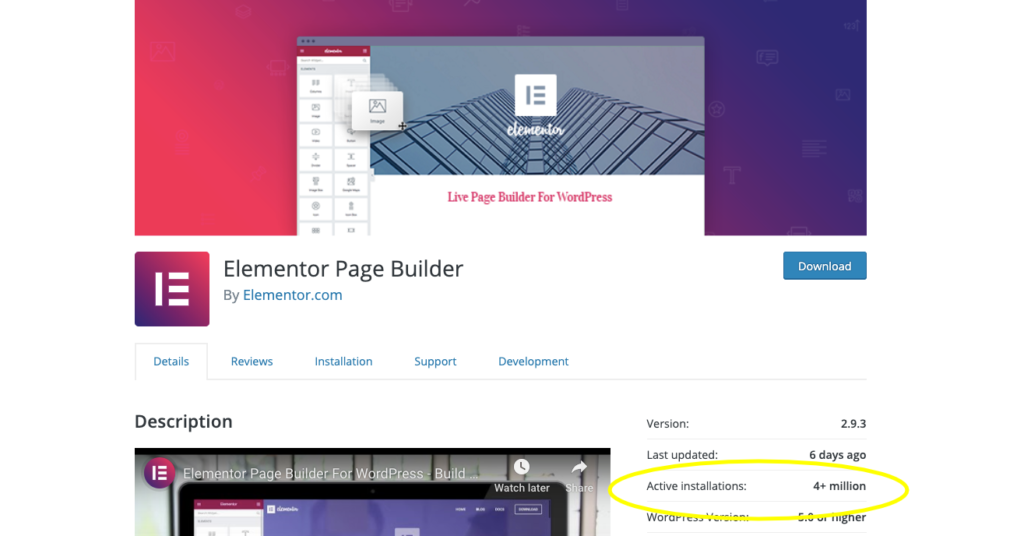
While having a great product and solid marketing strategy certainly helps, Elementor has always been a pioneer.
A Page Builder Worth Installing
Until Elementor entered the scene, page builder plugins generally weren’t accepted by the WordPress developer community. I know this because I was one of them.
Before I became the Head of Product here at Dollie, I’d built WordPress sites for over a decade. And during that time, I was firmly against using page builders.
The UI and UX sucked. The resulting code was a mess and poorly formatted. I mean, we’re talking major bloat.
Sadly, the issue persists today with many page builders (inside and outside of WordPress). However, Elementor has figured out a way around it, with excellent usability, resulting code quality, documentation, and extensibility.
Happier Clients and Developers
With Elementor, web developers can continue to build websites with their existing workflows. However, it doesn’t take as long to develop custom functionality anymore.
What’s more, developers are able to provide clients with an intuitive interface (something WordPress has long struggled with). This, in turn, empowers them to make small edits on their own.
In the end, clients are much happier and web developers make more money. Everyone wins.
Incredible Brand Loyalty
I joined the Elementor Community Facebook group on October 16, 2016.
Back then, the community was tiny, but it was a great place for us to help out fellow users still learning the ropes of the plugin. Even Ben Pines, the CEO, would jump in daily and talk to the community.
But it wasn’t just WordPress users talking to one another. Elementor really listened to the community and built out a product they wanted. The support for it was phenomenal with a YouTube channel full of explainer videos and blog post tutorials that could teach even the most novice user to build a site with Elementor.
It’s really incredible to see how hard Elementor worked to build a product that its users needed while managing to grow a loyal community around it. This may be what WordPress developers do today, but this wasn’t par for the course then.
A Huge Ecosystem
The ecosystem for Elementor add-ons, extensions, pre-made designs, and more has exploded. You can see it all over the WordPress plugin repository:
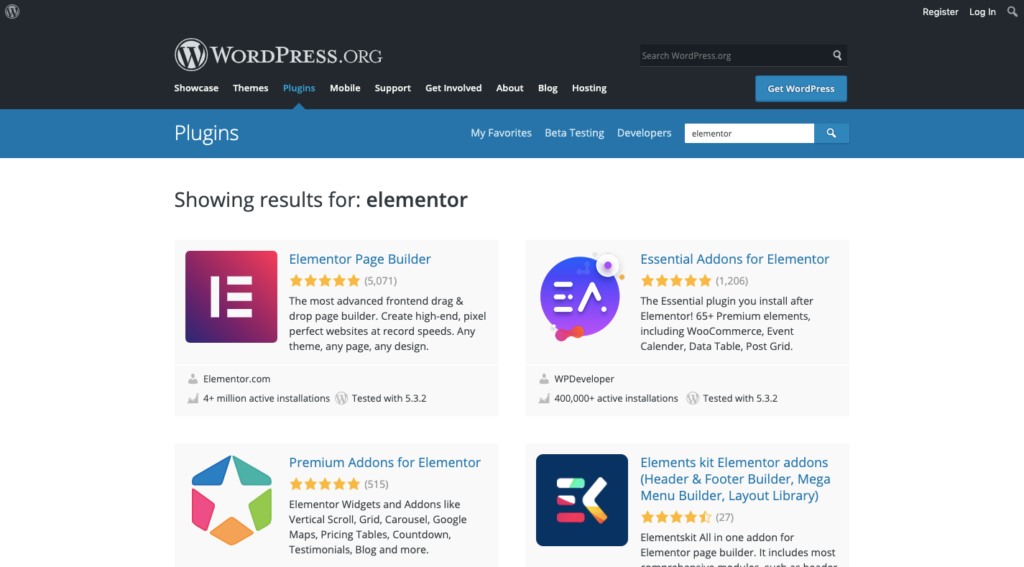
What’s more, every author on ThemeForest that wants to sell premium themes adds Elementor support first.
As a result, the number of agencies and freelancers using Elementor to sell websites-as-a-service (WaaS) has exploded.
Whether you’re just getting started selling Elementor-powered websites and maintenance services or you’re in the business of selling premium products to Elementor users, there is good money to be made.
Why Would Elementor Move to a SaaS Business Model Then?
Make no mistake: the WordPress and website development landscape is changing. With the rise of cost-effective and user-friendly website builders like Wix and Shopify, it’s time for the WordPress community to evolve.
As of writing this, we can only speculate what Elementor’s going to do with its $15 million in funding.
But if you look back at what the plugin’s co-founder said about “develop[ing] new innovative product lines”, I have a feeling that funding is going to fuel the plugin’s ability to adapt and innovate in the midst of all this change. And, once again, answer the call of its users.
Elementor as a SaaS
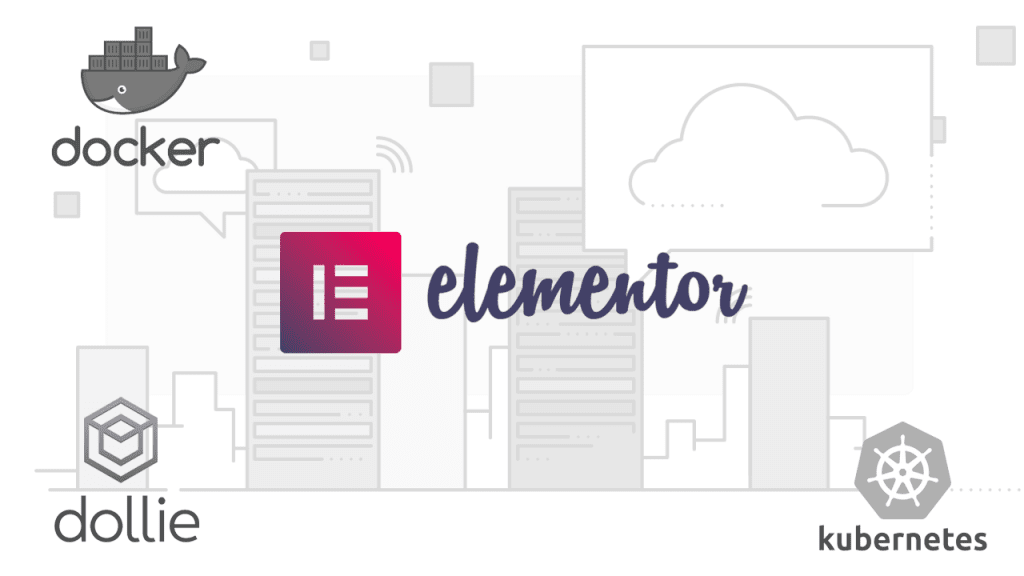
Here’s what I envision is going to happen:
Elementor will launch a hosted platform, supported by Envato, that at some point will include a marketplace for vendors to sell their designs and extensions. The service will not brand itself as a WordPress-powered product. It will be a full-featured software-as-a-service platform for web creatives.
Think about a tightly controlled, scalable, cloud platform that runs on a (modified) WordPress core. It would preserve all the best features of Elementor while removing the technical know-how typically required to manage a regular old WordPress site.
Then, combine that with a marketplace full of pre-made designs made by Envato authors that can be purchased and applied with the click of a button.
Loyal Elementor users will undoubtedly want to migrate their content from WordPress to the new hosted platform. And there’ll be big rewards for doing so, too, with reseller and affiliate programs to take advantage of.
Want more proof?
This isn’t just a guessing game. Here are some of the clues that have been dropped along the way:
Elementor is hiring a Cloud Team.
According to the DevOps Engineer job posting:
“You will be assisting the Cloud team on building, maintaining and supporting the company ‘Cloud Hosting SaaS Solution’. This job requires a good troubleshooting skill and a passion for technology. We also require 24/7 on call availability which will be given as duty from time to time.”
Brian Krogsgard from PostStatus broke the news about Elementor’s funding very early, and provided an interesting insight about what this job opening really means:
“I expect to see a fully hosted version of Elementor’s site building capabilities where WordPress is (at least partially) hidden from the view of the user.”
What’s really interesting about this part of the company’s growth is that Elementor is using the same technologies that we’ve built our Dollie Automation Platform on, embracing next-generation cloud orchestration solutions like Docker and Kubernetes.
Envato is (heavily) involved in Elementor.
WordPress theme and plugin vendors on Envato have been struggling with sales for a long time. As a result, Envato has tried to move into hosting (which didn’t work). It then moved into Envato Elements. This segment of the business is doing much better, in large part due to Elementor.
Another clue here that something’s going on between the two companies is that Envato has been busy getting their Elite Authors to develop template kits for Elementor. They are now even offering bounties with extra cash for authors, with a launch stated for mid-March.
Elementor launches Experts.
Envato isn’t just courting the WordPress author base. It recently launched Elementor Experts, a platform (currently in beta) for web designers to showcase their work, collaborate with other creatives to round out their services, and get hired.
If there was any doubt about where Elementor was going with all these changes, this recent development will put any doubts to rest.
Lightspeed speaks of “major product launches”.
What makes the team at Elementor such an inspiration is that they are truly forward thinking — and key investor Lightspeed knows this. Tal Morgenstern says:
“Elementor will use the funding to accelerate the expansion of its operation and its global community, with 500 meetups planned around the world for 2020. The company will also grow its team by 50% and is gearing up for major product launches which will change the way websites are built.”
Yes, it’s going to put more effort into growing its community. However, it’s the upcoming product launches we should all be keeping our eyes on as it’s going to set the pace for where WordPress businesses — from agencies to product developers — need to go next.
The Future of WordPress — and Your Business
If you are running a WordPress business, there are many things you can learn from the story of Elementor and its massive round of funding.
The future is not in selling one-off services. Recurring revenue is key.
And the first place you should look to do this is in the cloud (specifically, in hosting). Think about it:
Business owners are flocking to solutions like Wix and Squarespace because of how pain-free it is to set up a website. Hosting is something they don’t have to think about. Pre-built websites make designing a breeze. And a new site could realistically go live in an hour.
There’s one thing these website builders don’t have though and that’s the WordPress infrastructure.
Rather than allow your revenue to get eaten up by these inferior website builder solutions, you need to take a page out of Elementor’s book and look to the cloud to offer up your own recurring revenue SaaS or WaaS solutions.
If you’re a WordPress plugin or theme developer, you can turn each of your WordPress products into a click-to-launch solution or use Dollie to upsell your product sales over on Envato.
If you’re a WordPress agency, you can provide exceptional value to your clients by offering them a full-service digital experience. Charge your clients per site, per service, or anything that fits your business model.
Use the success of Elementor to future-proof your own WordPress business. Our team will be here to help you every step of the way.


